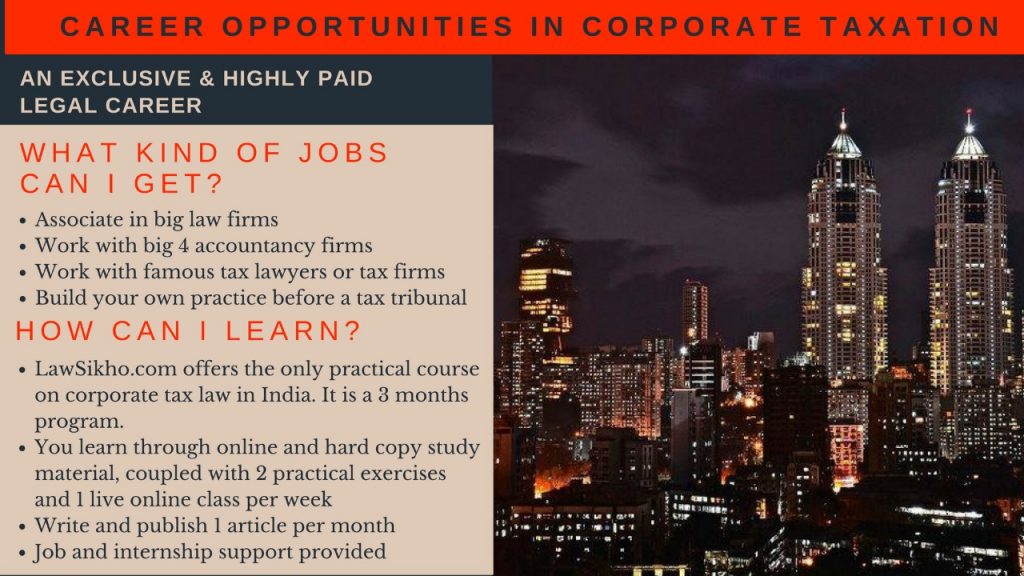This article is written by Theertha Narayanan who is pursuing a Certificate Course in Advanced Corporate Taxation from Lawsikho.
Table of Contents
Introduction
Under the Income Tax Act, 1961, an individual is taxed on his own income at predetermined rates depending on his age and his total net taxable income. There can be cases where individuals who have more income and are taxed at a higher rate might disclose some of their income through their close dependants like children or spouse. This can lead to such income being exempt or being taxed at a very lesser rate. Clubbing of Income is a concept under the Income Tax Act, 1961, which means certain income which is disclosed under the close dependants’ name is clubbed with that of the individual and the income is taxed as a whole. There is one question that arises when we talk about clubbing of income, that under what head of income will the clubbed income be included. The head of the income that is clubbed will depend on the nature of such income. For example, if A’s wife B receives salary from A’s firm then such salary would be included under income from salaries head in A’s tax return. If A transfers his shares to B for a less consideration, then the dividends received from such shares would be included under the head Income from other sources.
Provisions relating to clubbing of income under the Income Tax Act
The concept of Clubbing of income is enshrined in Section 64 of the Income Tax Act, 1961. Section 64 of the act lays down various cases in which income of dependents like spouse, children etc would be clubbed with the individual’s total taxable income.
Instances when income may be clubbed – with examples:
If there is a transfer of an income from the asset to another person, but the asset is not transferred, then such income would not be taxable in the hands of the transferee but the transferor. For example, if A transfers his rental income from his rented out house to B, without transferring the title of the house to B, then the rental income would be clubbed and included in the hands of A and not B since A is the transferor.
If there is a transfer of an asset for an inadequate consideration or if the asset is not valued properly, then the transferor would still be deemed to be the owner of the asset and the income from such asset would still be clubbed in the transferor’s income. For example, if A transfers his shares in a company to B for a very less price, then the dividends from owning such shares would still be considered to be the transferor’s income and it would be clubbed under A’s income and not B’s income.
If there is a transfer of any asset for a less consideration to any person for the benefit of the spouse or son or daughter in law or any other dependant of the individual then, the income arising out of that asset would be clubbed under the individual’s name.
Position of minor and spouse
- If there is a circumstance where the spouse of an individual receives salary, or any other form of remuneration from an organisation where the individual has substantial interest, then in such case the income received by the spouse would be clubbed with that of the individual. However, if the salary or remuneration received by the spouse arises out of the professional or technical knowledge and services to the firm, then such income would not be clubbed in the hands of the individual but in the spouse’s total income only. For the purposes of this provision the word substantial interest means the individual has more than 20 percent of ownership or shares or voting power by himself or along with his relatives in the relevant year. For example, if A has 60 percent of partnership shares in a partnership firm, and A’s wife B receives some remuneration from the firm, then the salary received from the firm by the wife would be clubbed under A’s name. However, if the salary received by B from A’s firm, arises out of the technical service or knowledge provided to the firm by B like if B is an inhouse accountant then such salary would not be clubbed under A’s income but would be considered as B’s individual income from salary.
- If there is a transfer of assets to the individual’s spouse for a very less consideration then, the income arising out of that asset would be clubbed under the Individual’s name. However, the income arising out of that transferred asset would not be clubbed under the individual’s name if such asset has been transferred as a part of the marriage annulment settlement, or if there is no existing marriage relationship between the individual and the spouse. For example, if A transfers his rented out home to his wife for Rs 1 lakh but the value of the property is Rs 1 crore, then the rental income received from such house property would still be clubbed under A’s name.
- It is also pertinent to note that under the Income Tax Act, 1961, even negative income is clubbed under the individual’s net total taxable income. For example, if A gives Rs. 10 lakhs to his wife to set up a business but then due to some failure in the business model, the business enterprise incurs a loss of Rs 2 lakhs. This loss can be clubbed under A’s total taxable income so as to reduce his taxable income under the act.
- If there is any income which is declared under a minor child’s name then the income would be clubbed under the total income of the parent who has a higher income than the spouse, but if the parents are divorced then it would be clubbed under the parent who has custody over the child. Under section 80U of the Income Tax Act, 1961, If the child of the individual is disabled then, the income would not be clubbed under the parent’s name. Moreover, if the money earned by the minor child is due to a manual work done by him/her, or it was earned out of any activity which involved applying the minor child’s skill, knowledge or talent, then such income is exempted from being clubbed as the parent’s income. For example, if C, who is the son of A earns Rs 1 lakh as pocket money from his parents, it would still be clubbed under A’s income. However, in cases where C wins a competition and receives prize money for his talent or knowledge then such prize money amount received by C would not be clubbed under A’s total net taxable income.
- In circumstances where there is a trust created for minor children of the individual, then the income of such trust would be clubbed in hands of the individual and not the minor child. However, the clubbing provision is only attracted if the child still has a status of a minor.
Hindu undivided family
In a case where a member of a Hindu Undivided Family transfers his or her personal property to the Hindu undivided family for a very less consideration or there is no proper valuation of the property then the income from such transferred property would still be clubbed in the hands of the individual transferor and not the HUF.
Preventing clubbing of Income
Though the provision of clubbing of Income under the Income tax act is enacted for the purpose to prevent tax evasion, we can still do some financial and tax planning to save taxes and prevent income from being clubbed under our hands. One such way is to give gifts during the wedding of a relative which is not taxable. The gifts given by relatives during marriage cannot be taxed how much ever the value of the gift is i.e. there is no upper limit for making such gift to the person getting married. Moreover, instead of giving away money or assets as gifts to our relatives, we can do the same transaction in the form of a loan or lease. More often income is clubbed because the husband would have transferred some asset to his wife which leads to income from such asset being clubbed under the husband’s name. The danger of this is as the income of two people is clubbed together and considered as one, the higher the income is the higher the tax rate that is applied on such income.
For example, instead of transferring our house property to our relative we can lease it to him for a rate, and the relative can even sublease such property and earn income from it. Moreover, one can make certain investments under his child’s name who is a major, and save taxes on the income earned from such investment. It is also pertinent to note that lending of money between relatives like spouse, children does not attract the provisions of Section 64 of the Income Tax Act, 1961, which leads to clubbing of income under the Individual’s name.
Conclusion
The provision regarding the clubbing of Income has been enacted with the intent to tax the persons who misrepresent their source of Income. However, the author would like to point out that tax evasion is illegal but not tax avoidance. With proper tax planning and interpretation of the laws, one can avoid the application of the clubbing provisions on his or his dependants income.
References
- Income Tax Act, 1961.
- ICAI study material for CA Inter Paper 4-Taxation.
- https://cleartax.in/s/section-64-clubbing-income
- https://taxguru.in/income-tax/clubbing-of-income-under-the-income-tax-act-
Students of Lawsikho courses regularly produce writing assignments and work on practical exercises as a part of their coursework and develop themselves in real-life practical skill.
LawSikho has created a telegram group for exchanging legal knowledge, referrals and various opportunities. You can click on this link and join:
 Serato DJ Crack 2025Serato DJ PRO Crack
Serato DJ Crack 2025Serato DJ PRO Crack











 Allow notifications
Allow notifications


